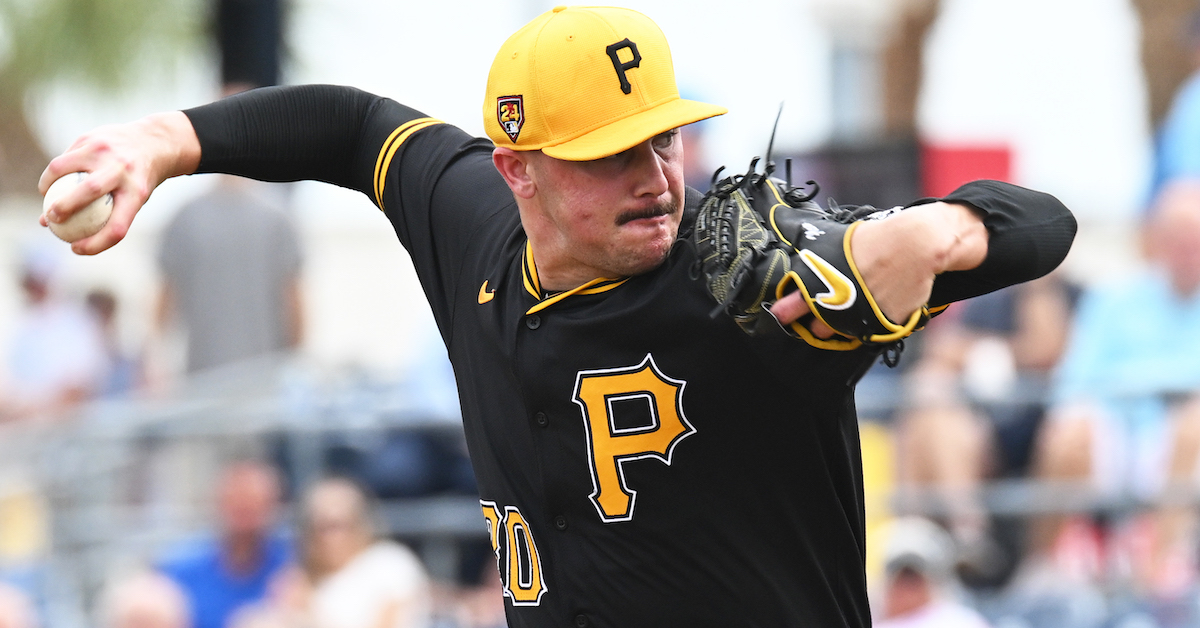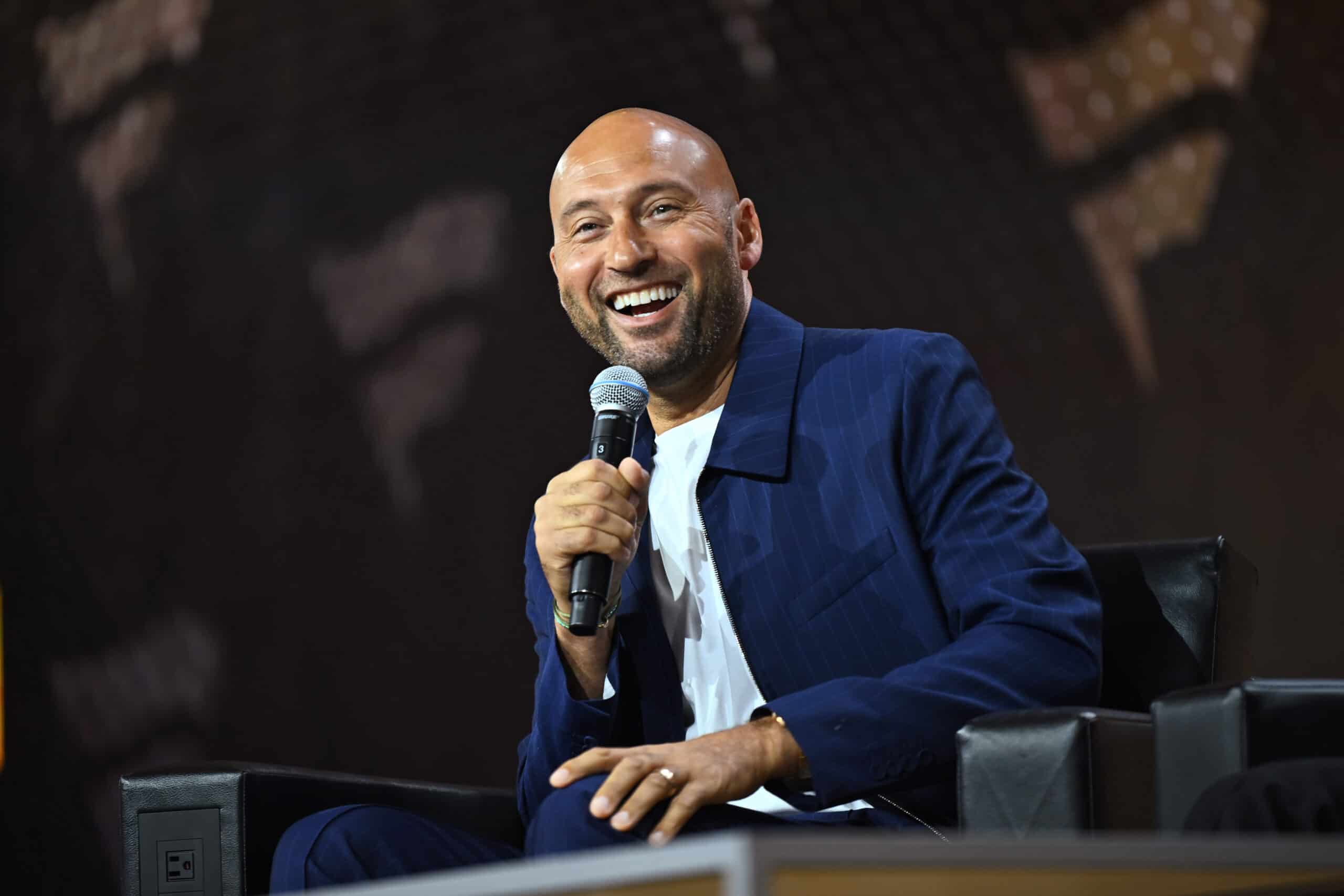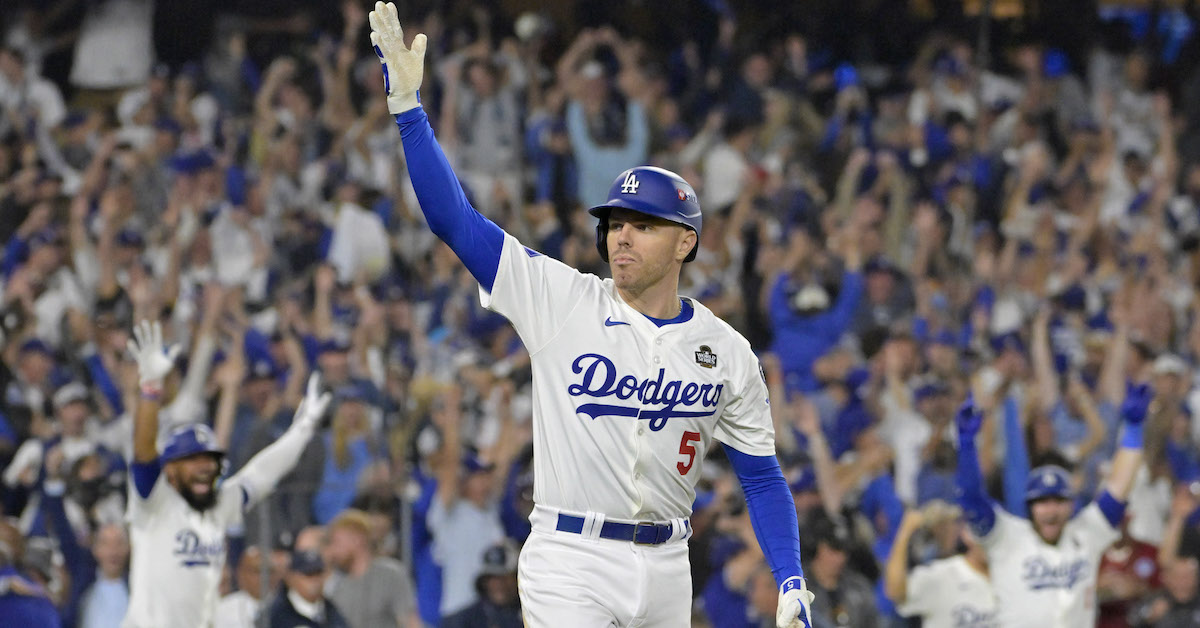[ad_1]
Jonathan Dyer-USA TODAY Sports
The best pitching prospect in baseball, 21-year-old Pittsburgh Pirates righty Paul Skenes, is slated to be called up tomorrow to make his major league debut against the Cubs. The 6-foot-6 leviathan has a 0.99 ERA in seven Triple-A starts this year and has struck out 42.9% of the hitters he’s faced across 27 1/3 innings. He’s a ready-made front-of-the-rotation starter, a Herculean physical presence with even bigger stuff, and perhaps the most important part of an increasingly promising situation in Pittsburgh, a city with three baseball playoff appearances over the last 30 years.
Almost exactly two years ago, Skenes was still a two-way player at Air Force, about to post a dominant 8-inning, 10-strikeout start against San Jose State, then reach base seven times over the final two games of that series. His velocity was climbing throughout the season, and at its conclusion loomed a decision as to whether he’d return to the Air Force Academy for a third year and be effectively locked into a two-year service commitment, or use the relatively new transfer portal rules to facilitate a one-year launching pad to pro baseball at a bigger program.
Skenes transferred to LSU and was a member of the 2023 College World Series champions, a veritable All-Star team with several high-profile transfers, the closest thing college baseball has had to a Fab Five phenomenon of its own. Though he was a first round prospect at Air Force, Skenes’ stuff, consistency, and physicality all took a leap at LSU. He ascended toward the very top of 2023 draft boards and was a justifiable first overall pick. (There were people in baseball who would’ve taken either Dylan Crews or Wyatt Langford instead, but nobody thought Skenes was a bad selection.) Even though Skenes had thrown more than 120 innings during the spring at LSU, the Pirates paraded him around to some of their affiliates, and he threw 6 2/3 innings after the draft before they shut him down for the year.
The Pirates gave Skenes some very specific developmental boxes to check in 2024 before he was promoted to the big leagues. Namely, Skenes made his first ever start on four days’ rest (college starters pitch once a week). His stuff was good enough for him to compete with, if not overwhelm, major leaguers at the start of the season, but the NL Rookie of the Year field was perhaps too crowded for the Pirates to be moved by Prospect Promotion Incentive rather than an extra year of control. Even so, Skenes is debuting less than a year after he was drafted, at age 21. All of this happened very quickly, and Skenes has been evolving and progressing the entire time.
His velocity has been creeping north pretty consistently for the past two years, even now. His 2024 average fastball velocity (99 mph, peaking at 102) is up a tad compared to 2023. He tends to use his fastball as a finishing pitch and more evenly mixes in his panoply of secondary stuff early in counts. Skenes’ fastball plays not only because of its elite velocity but because his fairly low arm slot creates shallower angles on that pitch than is typical of a pitcher his size. This heater has equal parts of vertical and horizontal break, which can sometimes be indicative of ineffectual fastball movement, but the performance of Skenes’ heater and the visual nastiness of it speak for themselves.
So far Skenes has paired this fastball most often with a hard slider. This was pretty comfortably his go-to secondary pitch in college. He manipulates the shape and velocity of it depending on what he’s trying to execute. It can bend in around 83-86 mph and act as a strike-stealing curveball, or it can peak around 90-92 mph and look more like a cutter. Traditional sliders are sandwiched somewhere between those two other pitch types. Because Skenes delivers from a lower slot there are times when he gets around the side of his slider too much and the pitch lacks the two-plane break of an untouchable one, but hitters have to be so keyed up to hit his 99-100 mph fastballs that they often whiff at those lesser sliders anyway. It’s maybe a plus pitch purely on stuff, but the east/west interaction Skenes’ slider has with his fastball and his ability to sculpt the shape of his breaker to the situation will probably help it play up.
I qualify Skenes’ slider as “his go-to secondary pitch in college” because his changeup usage has taken a leap in pro ball. Not only that, but Skenes has essentially developed a second changeup. He has a more traditionally gripped changeup from his amateur days, but he’s added a mid-90s “splinker” a la Jhoan Duran of the Twins. It’s a modified two-seamer that uses something approaching a splitter grip. Skenes tends to pronate over the top of his traditional changeup. The baseball comes off his middle and ring fingers to create movement that bottoms out below the zone. This type of release actually imparts some spin on the baseball, so Skenes’ changeups tend to live in the low-90s with about 2,100 rpm, while his splinker sits more in the mid-90s, spins less (closer to 1,800 rpm), and has more tailing action toward the knees of right-handed hitters. The rate at which Skenes has learned some of these new tricks (including the way he changes position on the rubber depending on hitters’ handedness) is very exciting. This guy is better now than he was a year ago, when he was the first pick in the draft.
You can make an argument that the Pirates have the two best pitching prospects in baseball in their big league rotation right now: Skenes and Jared Jones. (I know “prospects” isn’t exactly right, but “rookies” is a stretch given how the Japanese starters look.) I think Eury Pérez, who debuted as a 20-year-old in 2023 and is out for the season recovering from Tommy John surgery, is every bit as talented and freakish as Skenes (if not more so). But the Skenes mystique — driven by the fact that baseball fans have a pre-existing relationship with him because of his college exploits — makes his debut perhaps the most anticipated for a pitcher since Stephen Strasburg and Gerrit Cole, and the most until we see Roki Sasaki in a year or two.
[ad_2]



